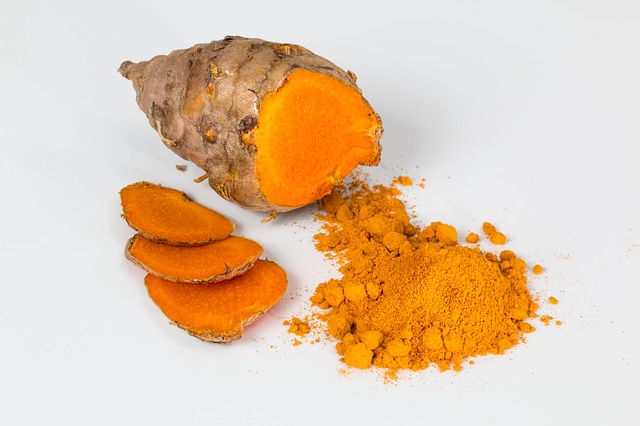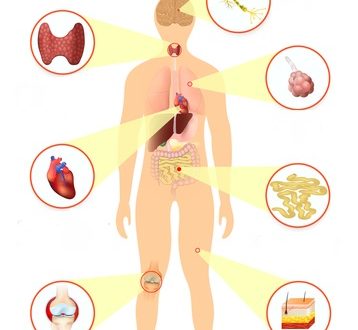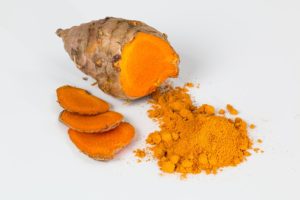Curcumin …..my favorite molecule of all time is in the news!!

Curcumin, derived from turmeric, is one of the most amazing compounds I have ever come across in my research career. It was 2000 and I was working in an immunology lab, studying immune response, inflammation, and other basic properties of the immune system. That’s when my cousin who was working at USC in infant lung development told me about this interesting compound curcumin. Once I started reading up on this molecule, I was amazed at all that was claimed about its abilities: anti-inflammatory, anti-cancer, as well as having tumor prevention properties! Sounded like a dream! How can one compound have such beneficial properties?
Steroids which are used in medicine, and research, to suppress the immune system as a way to dampen run away inflammation, are an highly useful medicine and have helped countless people with various conditions. The strongest of these steroids and the one most used in the clinic, and therefore in research, is dexamethasone. Dexamethasone turns off the immune system almost completely and without discrimination to the various subtypes of immune cells, and their various specialized responsibilities. When the immune system is fully shut off, not surprisingly all sorts of problems can come up. Needless to say this is one of the main drawbacks of steroid use. There are many others.
At the lab I also had access to an anti-TNF-alpha antibody that had recently become available for treating severe rheumatoid arthritis. This medicine also come with serious side effects. The pharmaceutical, called Enbrel, shuts off TNF-a completely by binding all of the TNF-a in the circulation. Zero circulating TNF-a is not good and the immune system feels lost without any of this TNF-a signal around. Too much and inflammation is wreaking havoc on the body, zero amounts of TNF-a and the immune system starts to fail!
Dexamethasone blocks not just TNF-a, but almost all responses by any of the immune cells. Enbrel blocks only TNF-a and doesn’t effect any of the other responses of the cells. Curcumin on the other hand affects TNF-a and presumably only lowers it down to normal levels and never fully shuts it off, and curcumin also keeps other aspects of the immune system intact. The immune system can still respond to an invading threat, but run away inflammation is stopped in its tract.
Many companies have been working for two decades or more on finding an analog of curcumin which can then be patented and have their multi-billion dollar drug. All attempts at making a patentable version of curcumin, with similar anti-inflammatory properties without undesirable side effects have all failed. Nature has provided the best medicine.
Since Alzheimer’s disease also involves inflammation as a major contributor of the disease and its progression, curcumin has been used for years in patients with Alzheimer’s however results have not been that clear due to the complexities and variables involved with Alzheimer’s and advanced age in the subjects. Recently more clear data suggested what was hypothesized all along, that curcumin does help with Alzheimer’s disease progression (if the drug gets absorbed). Curcumin is notoriously difficult to absorb into the blood stream, which is a necessity for its effects to be observed. For positive effects on Alzheimer’s outcome the drug not only has to get into the blood, but also has to cross the blood brain barrier in concentrations high enough to be effective.
Curcumin is safe and effective and has been in herbal formulas, as turmeric, for various conditions for millennia and its long term effects fully known: harmless with only positive results. Here is a list of some of what curcumin can help with:
Depression: there are some studies, in animals and in people, that are pointing to curcumin’s ability to help with depression. Presumably the anti-depressive properties of curcumin are attributed to both its anti-inflammatory properties and the ability to grow new neurons in the frontal cortex (1 , 2 ).
type II diabetes: In addition to anti-inflammatory effects, curcumin also has the ability to keep sugar levels in the blood more steady and those taking supplements of curcumin had a lower chance of getting diabetes type II.
viral infections: curcumin’s anti-bacterial and anti-viral properties makes turmeric tea a wonderful cup when you are feeling under the weather. Add some honey for a sore throat. Ginger if you have stomach upset.
LDL cholestrol and your heart health: studies are ongoing to determine whether curcumin can lower cholestrol as the studies so far have been mixed in terms of results.
Alzheimer’s disease: more and more recent data point to the benefits of curcumin supplements in terms of lowering the inflammation in the brain, contributing to lesser risk of developing Alzheimer’s.
Arthritis: As mentioned above in this post, curcumin inhibits to a very great extent one of the most important molecules in pathology of rheumatoid arthritis and that is TNF-a. This simple molecule achieves this without bringing the side effects that come with Enbrell and Remicade, two monoclonal antibodies used for severe arthritis. Why not give it a try!
Cancer: one of the common features of all cancer is chronic inflammation that seems to precede formation of a tumor. I know of nothing better for lowering inflammation than curcumin. Curcumin interferes with some chemo drugs so be sure to check with your physician. Because of its amazing anti-inflammatory properties, curcumin is being studies for its ability to inhibit formation and propagation of tumors.
Headaches: you know turmeric’s cousin, ginger is good for headaches, yet now we find that curcumin is good for headaches specially the migraine variety which can be so debilitating.
So guess what? The pharmaceutical companies weren’t going to let this opportunity pass them by, so after years of trying to make a patentable, safe, equally efficacious, and more readily soluble version of curcumin to no luck. Now they are attaching the molecule curcumin, to nano particles as a way to enhance their absorption, and they are going to call this ridiculous thing “Theracumin”!!!
Why would anybody want to risk internalizing nano particles when we don’t know how they clear the body? I have worked with nano particles and I’m telling you this is not going to be a good drug. If it gets approved, it will bring more complications than benefits.
Curcumin from Lyfe Botanicals is formulated in a way to get it absorbed into the body for optimal therapeutic actions. This formulation works and will get in the blood. Enjoy the benefits of this amazing supplement. High quality and the curcumin gets absorbed!
There is a similar strategy used in herbal medicine that has been around for so long. Seems the more we learn, the more we circle back to what our ancestors knew 🙂
Aside from foods provided by nature, acupuncture is very effective at lowering inflammation and is a focus of my work at Summit Healing Arts.
Recommended Posts

Unlocking Relief: How Acupuncture Can Be Your Ally in Managing Chronic Conditions such as Pain, Anxiety, Low Energy, Insomnia, and so much more
May 12, 2025

Acupuncture for Stress and Anxiety
March 8, 2025


